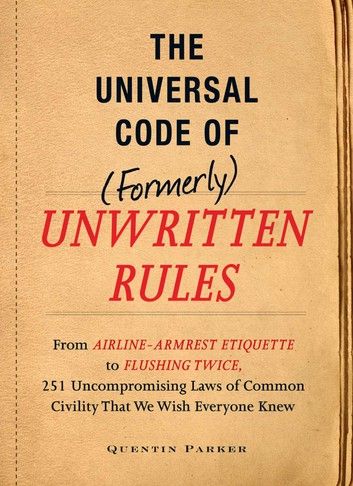The Phoenix Suns have recently introduced a significant change to their employee agreements, requiring staff to sign a contract that limits their ability to sue the team. This move, framed as standard corporate practice, raises questions about employee rights, corporate accountability, and the broader landscape of employment in professional sports.
A New Clause in the Corporate Playbook
In late May, Phoenix Suns employees received an updated version of the team`s handbook, with a notable addition: Part B, titled “Confidential information, Intellectual Property, and Dispute Resolution Agreement.” This new section isn`t merely about protecting trade secrets; it fundamentally alters how workplace disputes are handled. Employees were given a mere three days to review and agree to these new terms, with the unspoken implication that refusal could jeopardize their employment.
At the heart of this updated policy is a mandatory arbitration clause. This means that “all legal disputes and claims” between the Suns and its employees, including sensitive issues like employment discrimination, must be resolved through “final and binding individual arbitration” rather than through traditional court proceedings. Critically, this provision extends beyond an employee`s tenure with the organization, ensuring any past grievances remain subject to the same terms.
The “Standard Practice” Defense: A Closer Look
When questioned about the new policy, Stacey Mitch, the Suns` senior vice president of communications, asserted that “This policy is standard at most large organizations including Disney, ESPN, and many other NBA teams. This policy does not result in the waiver of claims.” On the surface, this statement aims to normalize the mandate, presenting it as an unremarkable aspect of modern corporate governance.
However, reality, as often happens, proved more nuanced than the official narrative. Reports quickly emerged contradicting the claim that ESPN itself mandates such arbitration clauses for new hires, nor does the Disney Handbook contain such a requirement. This discrepancy casts a rather long shadow over the Suns` assertion, suggesting that what is presented as industry standard might, in fact, be a more aggressive stance than some of their peers. One might wonder if the Sun`s legal department is simply playing an advanced game of corporate chess, or perhaps just needs a better fact-checker for its PR statements.
Beyond the Court: A Troubled Legal History
The timing of this new policy is particularly illuminating. The Phoenix Suns franchise has found itself embroiled in a flurry of legal challenges, with six lawsuits filed against the team since October 2024. Five of these originated from either current or former employees, highlighting a pattern of internal disputes that predates this new arbitration mandate.
For instance, former employee Andrea Trischan sued the team in November 2024, alleging harassment, racial discrimination, retaliation, and wrongful termination. Her case, a clear example of the kind of dispute this new policy is designed to divert, would have been rerouted to arbitration had it fallen under the updated handbook`s terms. While Trischan`s complaint to the U.S. Equal Employment Opportunity Commission was dismissed, her attorney`s claims of “overt racist comments and a hostile work environment” paint a grim picture of the workplace atmosphere that the team is now seeking to manage more proactively—or perhaps, less publicly.
Furthermore, the team`s troubles aren`t limited to employee relations. Companies associated with minority owners Andy Kohlberg and Scott Seldin have also filed suit against majority owner Mat Ishbia, alleging he has refused to grant them access to internal records. These ongoing legal skirmishes suggest an organization wrestling with internal transparency and conflict resolution, making the new arbitration policy seem less like a proactive, benign update and more like a strategic response to a mounting wave of litigation.
The Implications for Employees and Corporate Accountability
Mandatory arbitration clauses are a contentious issue in employment law. Proponents argue they offer a quicker, more cost-effective way to resolve disputes, benefiting both employers and employees by avoiding lengthy and expensive court battles. Critics, however, contend that these clauses often favor employers, stripping employees of their right to a jury trial and potentially reducing transparency and accountability. Arbitration proceedings are typically private, meaning that allegations of misconduct—even serious ones—can be resolved without public scrutiny, which can be particularly concerning in cases of discrimination or harassment.
For the Suns` employees, signing this agreement means surrendering a fundamental right to seek justice in a public court. While the team states the policy “does not result in the waiver of claims,” it undeniably shifts the venue and process for those claims, potentially altering the power dynamic significantly. In a high-stakes environment like professional sports, where the power imbalance between a multi-million-dollar organization and an individual employee is already substantial, such a policy can feel less like a procedural upgrade and more like a contractual muzzle.
Looking Ahead: The Future of Suns` Workplace Culture
As the Phoenix Suns continue their journey, both on and off the court, this new arbitration policy will undoubtedly remain a talking point. It represents a clear effort by the organization to manage its legal exposure and internal conflicts in a more controlled, private environment. The question that remains is whether this approach fosters a more harmonious and just workplace, or if it merely sweeps potential issues under a confidential rug, away from public view and rigorous judicial review.
Only time will tell how this new “dispute resolution agreement” impacts the Suns` organizational culture and its relationship with its most vital asset: its people. One can only hope that, despite the new contractual boundaries, the spirit of fair play extends beyond the basketball court and into the corporate offices.
Disclaimer: This article provides analysis based on publicly available information and does not constitute legal advice.

